Have you ever found yourself in a heated argument, wondering how to mend the emotional rift it created? Apologies can be tricky, but they are essential for healing and moving forward. In this article, we'll explore heartfelt letter templates that help you express your remorse and rebuild those important connections. Dive in to discover the best ways to say âI'm sorryâ and open the door to reconciliation!
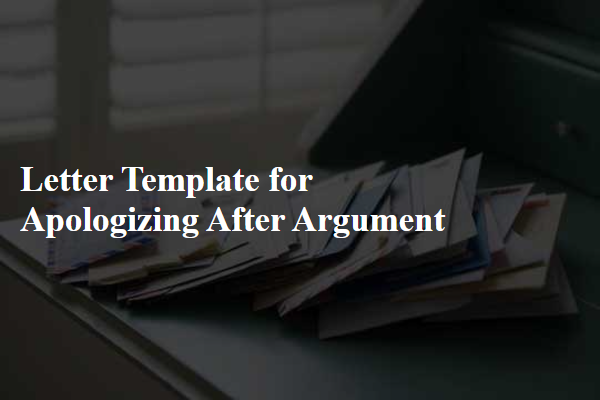
Acknowledge the issue
Arguments can create significant emotional rifts in interpersonal relationships. Recognizing the underlying issue is crucial in the process of mending bonds. An apology should address specific concerns raised during the disagreement, which might include misunderstandings about communication styles or differing perspectives on a particular topic. For instance, recurring disputes about emotional needs often stem from unexpressed feelings or unmet expectations, leading to frustration. A sincere acknowledgment of these points can pave the way for healing. Moreover, reflecting on the shared history, such as memorable events or experiences that cement the relationship, emphasizes the importance of resolution and growth. Empathy plays a vital role, demonstrating a willingness to understand the other person's viewpoint and fostering reconciliation.
Take responsibility
In personal relationships, acknowledging mistakes can play a crucial role in reconciliation after disagreements. A heartfelt apology can include recognizing specific actions that contributed to the conflict, such as speaking harshly during a conversation that escalated due to differing opinions. It's vital to mention the emotions involved, such as regret or disappointment, ensuring that the remorse is genuine. Taking responsibility demonstrates maturity, especially in long-term relationships, where effective communication nurtures trust and understanding. Focusing on how to improve future interactions shows commitment to maintaining a healthy bond, ultimately leading to resolution and emotional healing.
Express sincere remorse
Arguments can strain relationships significantly, causing emotional distress and misunderstandings. Sincere remorse involves acknowledging one's actions, taking responsibility for hurtful words, and expressing genuine regret for any pain caused. Addressing the other person's feelings is crucial; understanding how the argument impacted them creates a pathway for healing. Offering a commitment to improve communication in the future can restore trust. A heartfelt apology can rebuild connections, provided it is articulated thoughtfully and without distractions. Engaging in follow-up discussions can further mend relationships, ensuring both parties feel heard and validated.
Offer a solution or suggest a resolution
Apologizing after an argument can be a crucial step in mending relationships. A sincere apology should acknowledge the emotions involved, express regret, and propose a potential solution. After the disagreement, a meaningful approach could involve suggesting a specific time for an open dialogue, where both parties feel comfortable discussing feelings and perspectives. You might offer to meet at a neutral location, such as a favorite coffee shop, to foster a more relaxed atmosphere. Ensuring that both individuals can express themselves without interruption can help create a better understanding moving forward. This proactive approach not only demonstrates commitment to resolving the conflict but also reinforces the value placed on the relationship.
Reaffirm the value of the relationship
After a heated argument, it's important to reaffirm the value of the relationship. Acknowledging the history shared together, transformative moments and deep connections formed over the years is crucial. Sentiments like love, trust, and respect can help soothe wounds created during conflicts. Highlighting cherished memories can remind both parties of the positive aspects of the relationship. Apologizing sincerely for specific actions demonstrates a genuine commitment to mending the bond. Expressing a desire to communicate openly going forward can reinforce the intention to prioritize the relationship's health, ensuring growth and understanding.

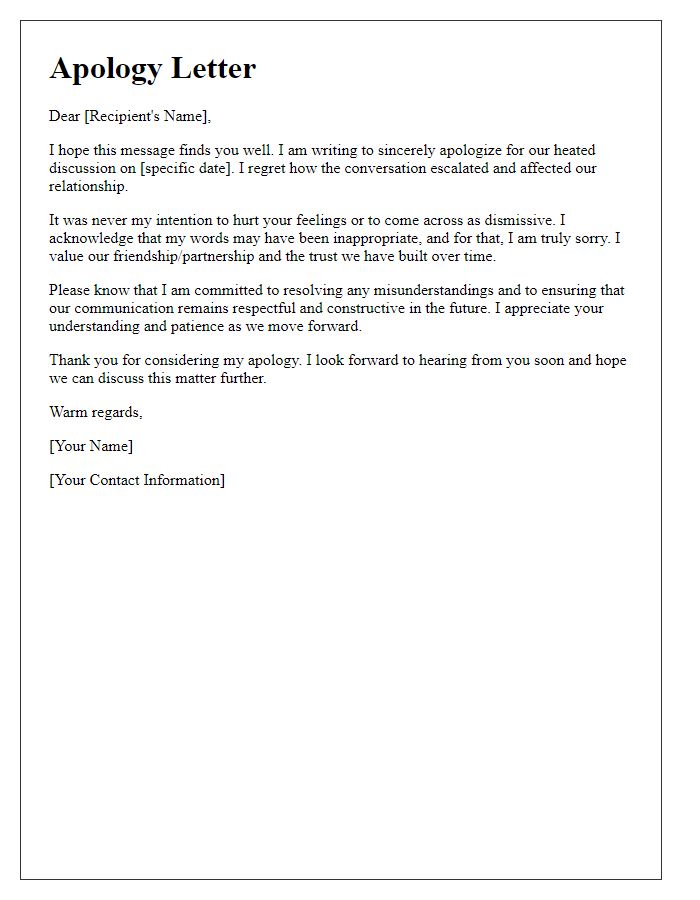
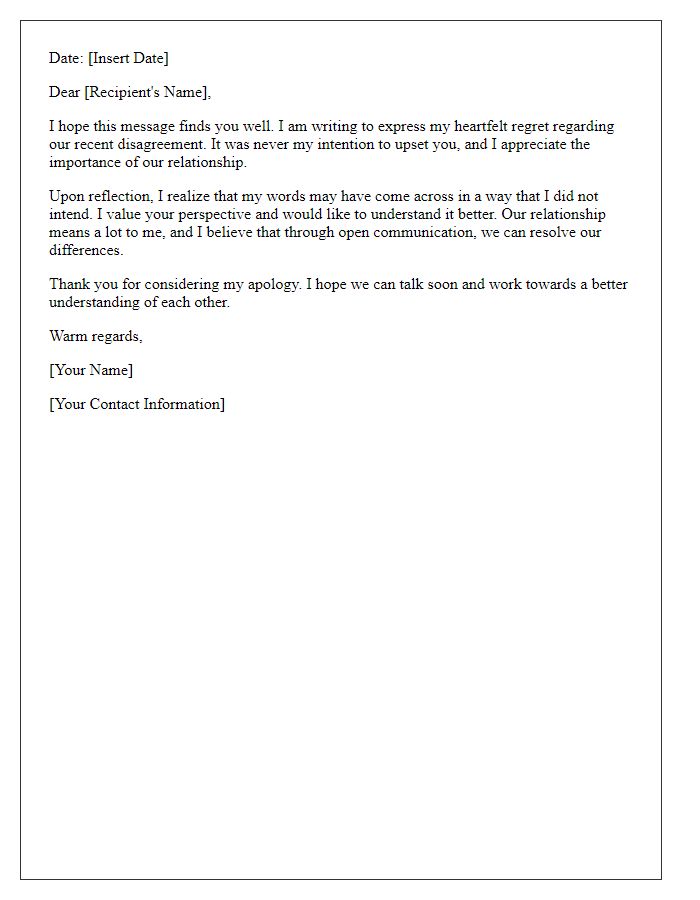
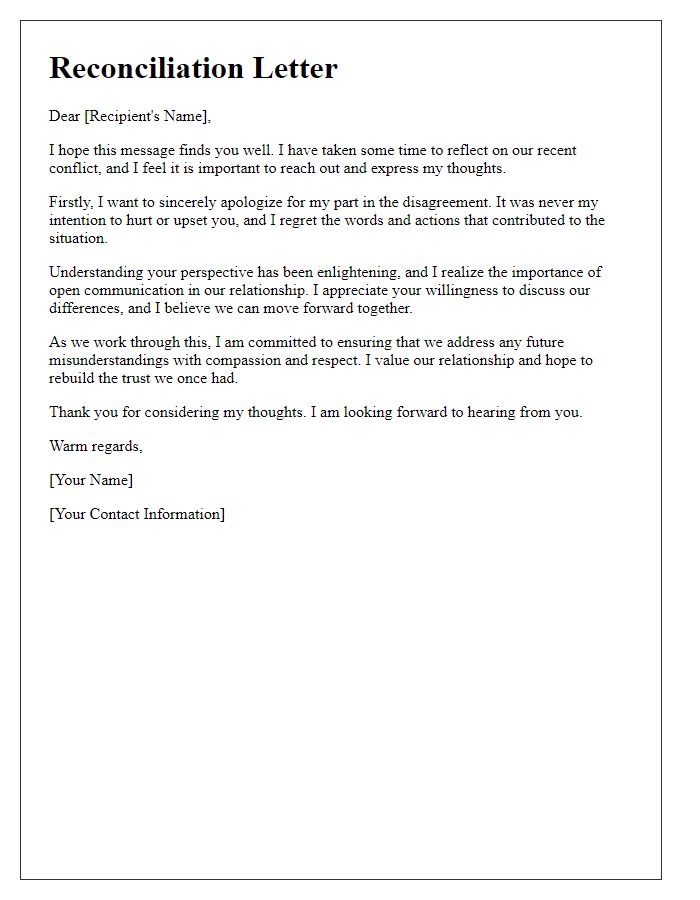
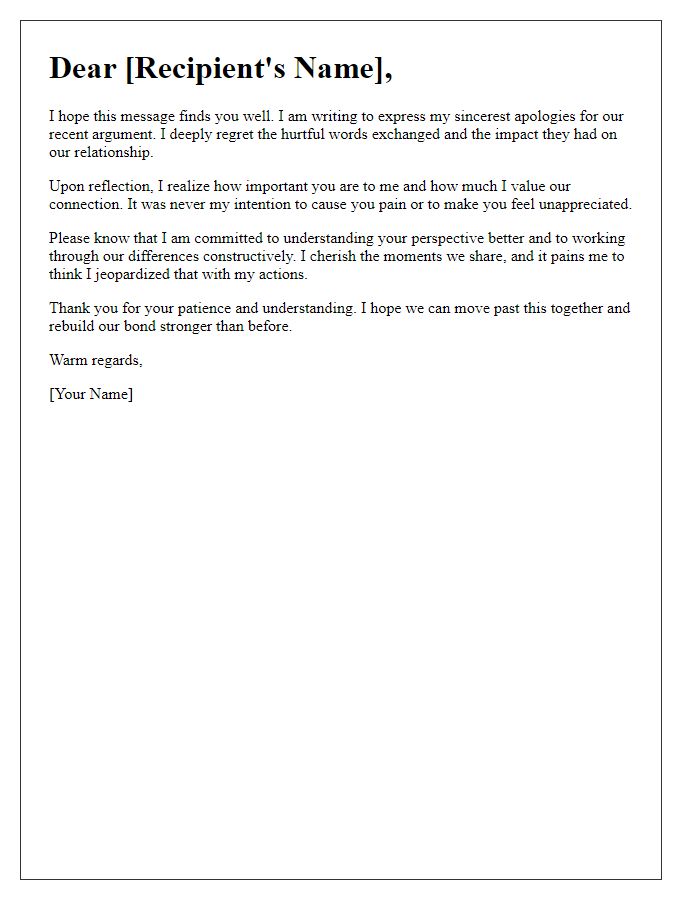
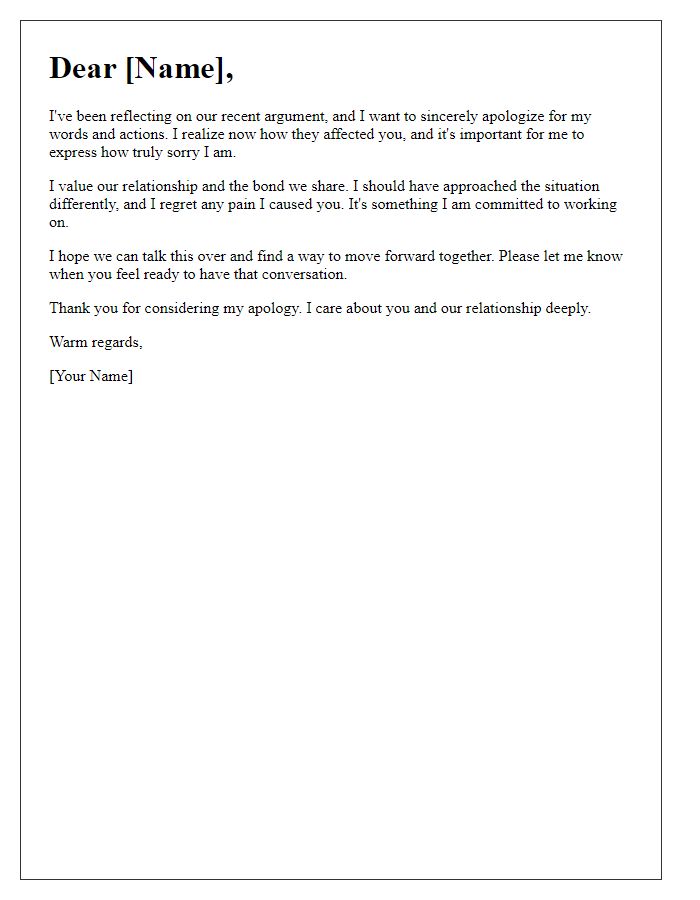
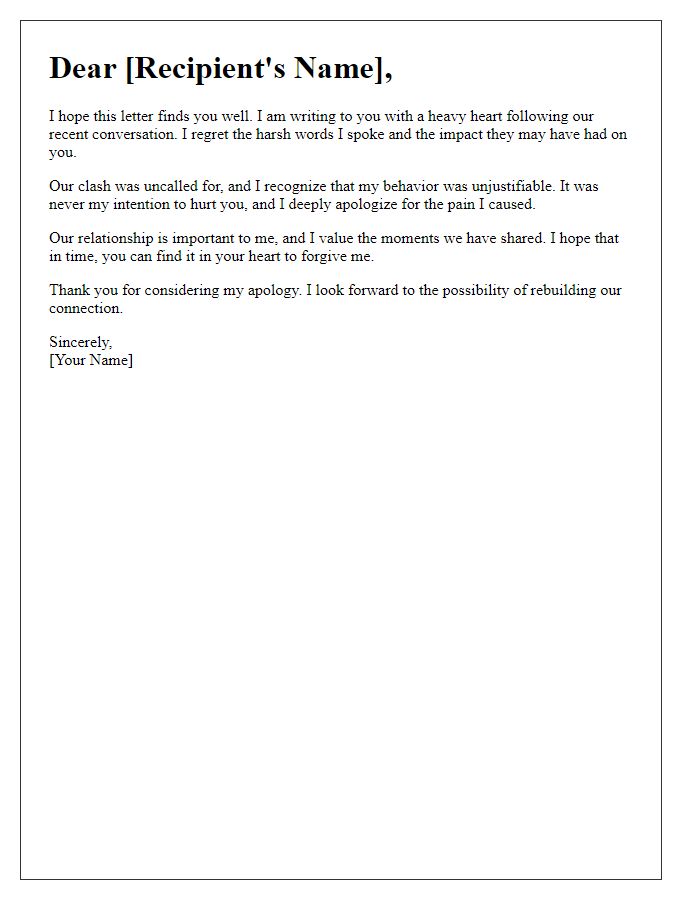
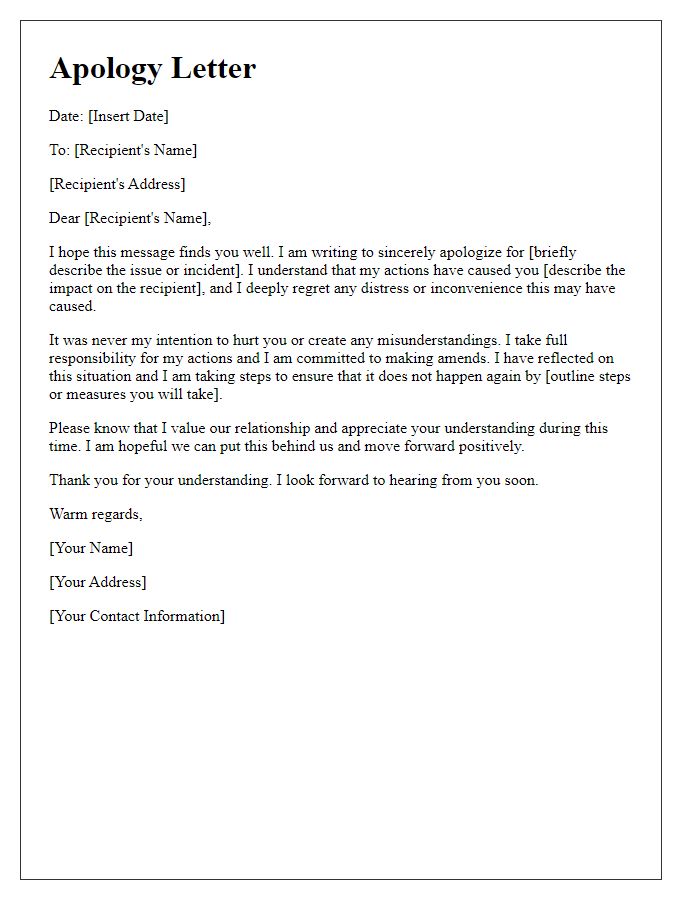
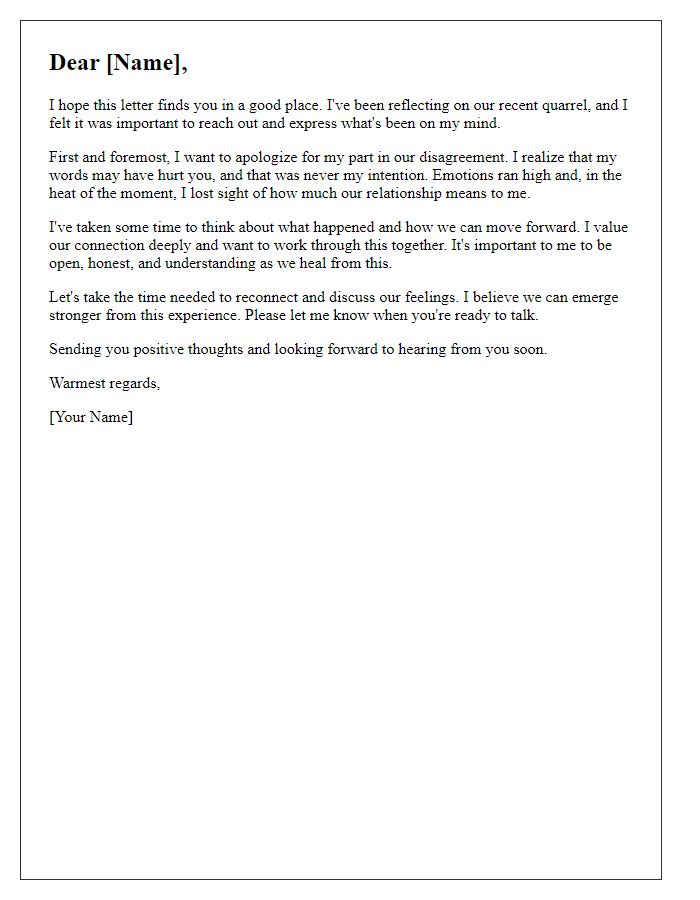

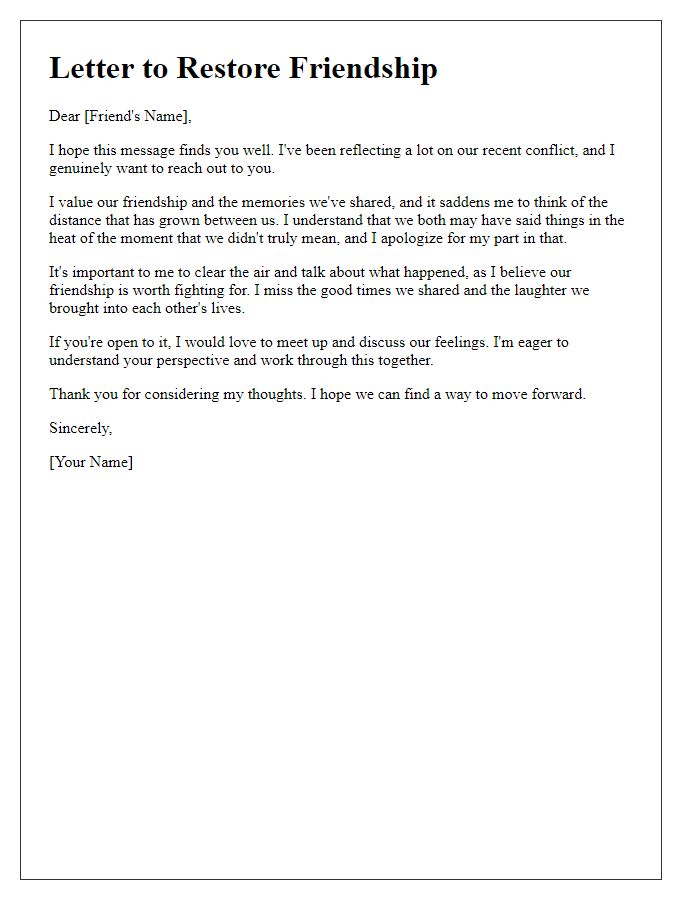

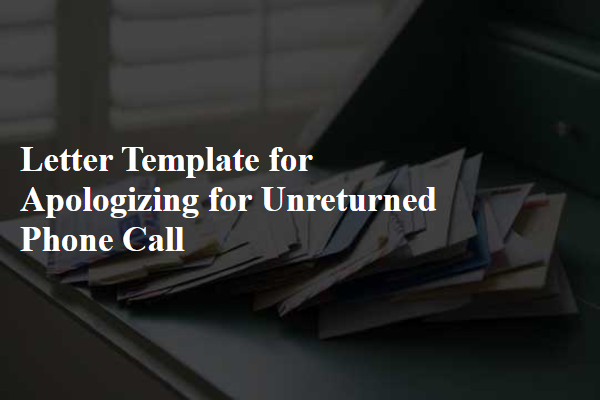
Comments